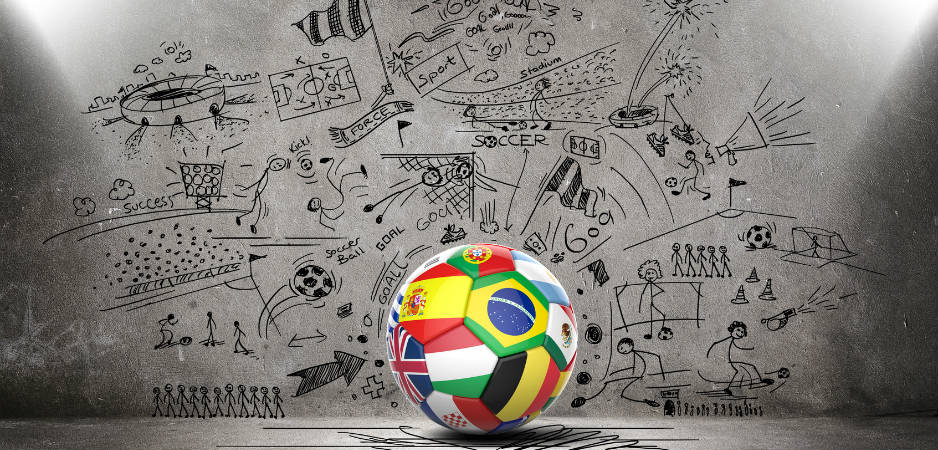There is little that Saudi Arabia and Iran agree on, except soccer and religion.
Sunni scholars in Saudi Arabia and their Shia counterparts in Iran may be at war over who is a Muslim, but there is one thing they agree on: soccer detracts from religious obligations. Iran, in the latest skirmish between soccer and Islam, is debating the propriety of playing a 2018 FIFA World Cup qualifier against South Korea on October 11, the day Shias celebrate Tasua, the ninth day of the month of Muharram, one of the holiest days in the Shia Islamic calendar on which the faithful commemorate the martyrdom of Imam Hussein, the grandson of Prophet Muhammad.
The Iranian debate erupted six years after Saudi clerics parked flatbed trucks in front of internet cafés to persuade fans to break away from watching matches being played in the 2010 FIFA World Cup in South Africa at prayer time. Imams rolled out red carpets to entice fans to pray.
Saudi-Iran Relations
The incident has highlighted the concern of conservative men of the cloth—irrespective of what branch of Islam they adhere to—who see soccer as competition because it is one of the few things that can evoke the kind of deep-seated passion in the Middle East and North Africa that religion does.
Saudi-Iranian tensions, the Sunni-Shia affinity with regard to soccer notwithstanding, erupted on the pitch earlier this year when Saudi clubs refused to play Asian Football Confederation (AFC) matches in the Islamic Republic because of deteriorating relations between the two countries as a result of a struggle for regional hegemony.
The Iranian debate was also being waged three years after Iran and Saudi Arabia played another crucial game day after President Hassan Rouhani was elected into office. Iranian authorities worried at the time that the match could become a venue for anti-government protests if Rouhani were to be defeated by a hardliner. In the end, the match provided an opportunity to celebrate two victories: Rouhani’s electoral triumph and the success of the Iranian national team.
The current debate erupted when Ayatollah Mohammed Yazdi, a former head of the Iranian judiciary and ex-hardline member of the Assembly of Experts that elects and monitors Iran’s supreme leader, took Youth Affairs and Sports Minister Mahmoud Goudarzi to task for allowing the match to go ahead on Tasua. A stark critic of Rouhani’s more liberal social and cultural policies, Ayatollah Yazdi currently heads the Society of Seminary Teachers in the holy city of Qom.
The date for the match was fixed long before it was clear on what days the commemoration of Imam Hussein’s death would fall. Precise dates of Muslim holy days are often determined by moon sightings.
Deputy Parliament Speaker Ali Motahari, scion of another prominent Shia scholar, ridiculed the ayatollah’s criticism, according to Al Monitor, in an open letter: “Imagine that Iran scored against South Korea and some people cheered. Does that mean that the people are cheering the martyrdom of Imam Hussein? If someone after years meets his mother, father or child on the eve of Ashura, should he then not be happy and smiling to avoid violating the sanctity of the imam?”
In an apparent understanding of the power of soccer, Motahari warned that Ayatollah Yazdi’s approach would ultimately mean soccer’s defeat of Islam. The ayatollah’s position, he said, was comparable to “the activities of the Catholic Church in medieval times that resulted in the Europeans’ escape from religion.”
The debate has sparked a rumor mill of unconfirmed reports on how the Iranian soccer association may be trying to mediate the opposing positions. Various reports suggested that Iran had requested that Korean fans restrain their expressions of support for their team, or that the Korean national team wear dark colored shirts rather than their traditional red ones as an acknowledgement of the mourning of the death of Imam Hussein.
Saudi Arabia and Iran: They Agree on One Thing
Ambivalence toward soccer among Saudi and Iranian scholars is deep-rooted. Soccer’s popularity in Iran forced the mullahs shortly after their toppling of the shah in 1979 to drop their initial opposition to the game. The mullahs’ hesitancy toward the sport was expressed in a pamphlet published a year after the revolution by the government’s propaganda arm, which argued that money spent on soccer would be better invested in social and economic development.
Saudi Arabia’s religious establishment has similarly struggled with soccer. The official website of the General Presidency of Scholarly Research and Ifta (Fatwa) has endorsed the game but banned competitions—a ruling the Saudi government has consistently ignored.
To Saudi Arabia’s Muslim scholars, Iran’s Shias are heretics. Iran denounces Saudi Arabia’s puritan Wahhabi interpretation of Islam as the inspiration of Sunni Muslim jihadism. There seems little that the two countries and their religious establishment can agree on, which makes the meeting of the minds on soccer all the more remarkable.
The views expressed in this article are the author’s own and do not necessarily reflect Fair Observer’s editorial policy.
Photo Credit: Efks
Support Fair Observer
We rely on your support for our independence, diversity and quality.
For more than 10 years, Fair Observer has been free, fair and independent. No billionaire owns us, no advertisers control us. We are a reader-supported nonprofit. Unlike many other publications, we keep our content free for readers regardless of where they live or whether they can afford to pay. We have no paywalls and no ads.
In the post-truth era of fake news, echo chambers and filter bubbles, we publish a plurality of perspectives from around the world. Anyone can publish with us, but everyone goes through a rigorous editorial process. So, you get fact-checked, well-reasoned content instead of noise.
We publish 2,500+ voices from 90+ countries. We also conduct education and training programs
on subjects ranging from digital media and journalism to writing and critical thinking. This
doesn’t come cheap. Servers, editors, trainers and web developers cost
money.
Please consider supporting us on a regular basis as a recurring donor or a
sustaining member.
Will you support FO’s journalism?
We rely on your support for our independence, diversity and quality.






